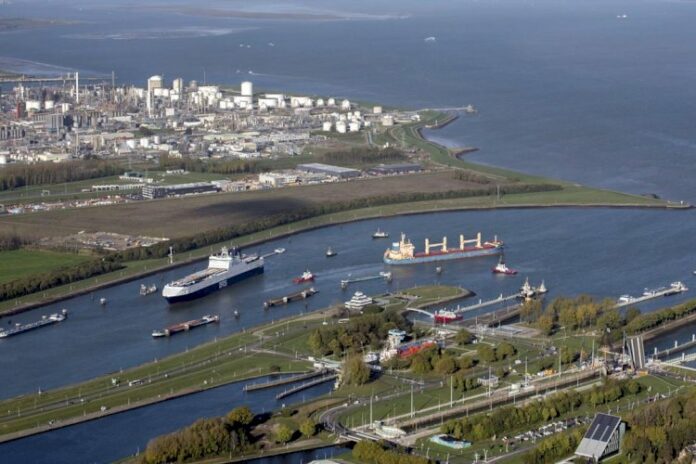Capturing and reusing or storing CO2 (Carbon Capture & Utilisation/Storage, or CCUS for short) has the potential to cut CO2 emissions in the North Sea Port area by 30% (6.5 million tonnes of CO2 per year).
With this in mind, a consortium of Belgian and Dutch companies have set up the Carbon Connect Delta project, starting with a feasibility study on CCUS in 2025. The study will examine all aspects of CCUS: the technical, economic and legal aspects, the required infrastructure for the transport of CO2 by pipeline or ship, finance options, commercial feasibility and permit procedures. The consortium expects to complete the feasibility study by the end of 2020, after which the project will be further developed for implementation.
The consortium is made up of Smart Delta Resources, North Sea Port, the companies ArcelorMittal, Dow Benelux, PZEM, Yara and Zeeland Refinery and infrastructure partners Gasunie and Fluxys. Together, the consortium partners have a broad network and the required knowledge and expertise to make the Carbon Connect Delta project a success. Because the consortium cooperates across industrial sectors (chemicals, petrochemicals and steel), as well as with the relevant government agencies in both countries, unique synergies and opportunities for a sustainable economy will be generated.
The consortium’s aim is to capture 1 million tonnes of CO2 per year as early as 2023 and to increase this to 6.5 million tonnes per year by 2030, which will represent a 30% reduction in CO2 emissions in the Scheldt-Delta region. In this way, the Carbon Connect Delta project will make an important contribution to the Paris climate objectives and the more recent European Green Deal.
CCUS is one of the tracks that Smart Delta Resources (SDR) is pursuing in order to achieve climate-neutral industry in the Scheldt-Delta region by 2050. SDR, supported by Impuls Zeeland, the Province of Zeeland and the Province of East Flanders, is also working on other development tracks, such as sustainable hydrogen (Hydrogen Delta), residual heat, electrification and recycling.
Smart Delta Resources has already taken steps to substantially reduce CO2 emissions. In early 2018, a Roadmap was adopted to enable the industry cluster to meet the Paris climate objectives. In recent years, various studies have been completed on the required energy infrastructure. A hydrogen link between Dow in Terneuzen and Yara in Sluiskil has already been built. In addition, the innovative Steel2Chemicals (Dow Terneuzen) and Carbon2Value (ArcelorMittal Gent) projects are well-advanced.



